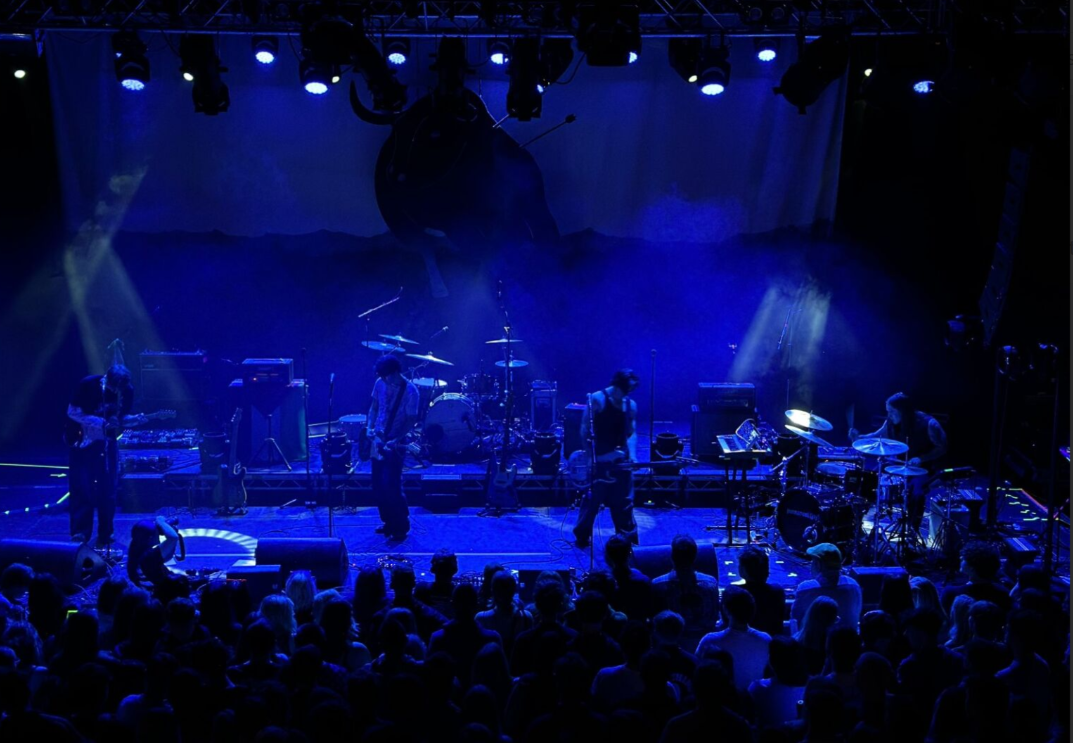Assassin’s Creed Valhalla Review by Marcus Yeatman-Crouch | ÔÿàÔÿàÔÿàÔÿàÔÿà
A massive thanks to Ubisoft UK for the review key and images. All opinions expressed in this article are my own.
The Assassin’s Creed franchise has made a bold foray into the RPG genre in recent years, starting with Egyptian-themed Origins, improving on the format with the Ancient Greek Odyssey, and now going further than ever before with the Viking romp that is Valhalla. This game has been highly anticipated by those awaiting Ubisoft’s final leap of faith into a new genre after the previous two titles took tentative steps, but never really hit the mark. There are a lot of questions surrounding Valhalla, not least whether the game is even ÔÇÿAssassin’s Creed’ anymore, but worry not, we’ve got the all-encompassing review of this gigantic new title.
In Valhalla, you’ll be playing as Eivor – who canonically fits in as either gender you pick, or you can allow ÔÇÿthe Animus’ to change their gender depending on your choices as you play and the events you encounter. You and your adoptive elder brother Sigurd set out from the fjords of Norway to start life anew in England, your hearts set on raiding the four kingdoms and establishing a Norse settlement with your clan. Along for the ride are a pair of assassins (ÔÇÿHidden Ones’ really, the precursors to the legendary brotherhood we know and love), whose interests align with your own: they are seeking to take down the Order of the Ancients (also precursors to the Templars) in England, and considering the Order tend to mingle around those in power, your targets are the same. This sets the stage for a grand saga, sending you to each kingdom to usurp the power of the Order while turning your settlement into a thriving hub for your clan.
Eivor’s job is to help gain new alliances, and these visits to different shires and kingdoms take up the majority of the main questline, as you travel to new areas and encounter a multitude of famous historical figures (the Sons of Ragnar, anyone?) who will help or hinder your reaving across the countryside. As for what’s going on at home, your settlement of Ravensthorpe is an equally important location. Earning some of the better items is directly tied to your settlement: if you want that new raven skin or some nicer gear at the trader, you’d better raid some monasteries and build improvements for Ravensthorpe. It’s a good way of getting the player to return home and serves a better purpose than in Assassin’s Creed 3, where the settlement often felt like a chore to improve and didn’t add much in the way of personal gains. Now, everything you build will help you, and the higher your settlement level (there’s 6 tiers to get through) the more stuff you can unlock and the more bustling your home will be. Finishing major questlines in the other zones will also see you return to a more improved hub, adding some progression to show that things at Ravensthorpe are still going even as you’re off doing the main story.

Valhalla thrusts you into a classic Nordic environment – a mead hall – from the off, immersing the player in the Viking lifestyle right after pressing ÔÇÿNew Game’. It’s a sign from Ubisoft that, as usual, they’re taking the real history and lore of such a popular cultural group seriously. This becomes evident throughout the game in the conversations and actions of the characters, and if you play with subtitles there are even captions in parentheses to explain what certain Old Norse terms like Althing or drengr mean. As with most Assassin’s Creed games, you don’t just get transported into history, you get taught it, and by the end of the experience you’ll end up feeling like you’ve got a doctorate in Viking history. Little minigames like flyting (Viking rap battles), Orlog (a dice game) and drinking competitions (self-explanatory) provide a welcome break from adventuring, and still allow you to immerse yourself in Eivor’s culture and earn some side money if you’re any good. Combine these with some classic AC collectibles like the return of the flying paper – which in Valhalla grants you new tattoo designs – Roman artifacts, and Hidden One codexes that will fill you in on some brotherhood lore, and the game really has a wealth of interesting pit stops as you reave across England.
There is a diverse range of stunning environments – from the fjords of Norway (featuring some impressive Northern Lights), to the classic farmland of England, mixed in with swamps and northern hills that present challenging but equally beautiful terrain to traverse. One nice detail is the inclusion of the English riverways on the map – your longship is the quickest way around, and taking the ÔÇÿriver roads’ is as scenic as it is fast, and it can be truly mesmerising watching your custom ship sail through the landscape. The enigmatic nature of exploration in the game is what makes these environments worth traversing. Unlike previous games, where a plain ÔÇÿ?’ would denote something to visit on the map, Valhalla simply gives you a coloured spot: blue, yellow, or white, for mysteries, wealth, or artifacts. This obscurity really got the completionist in me going – I knew vaguely what I would find on my arrival, but I couldn’t ever be sure if it would be a new mini-quest, a dangerous bossfight, or a simple chest – and detours were welcome breaks from following the main quest.
As much as combat is such a big part of this game, there’s surprisingly not much to say. It’s very similar in style to the previous two games, just with a few extras like a stamina bar to make it feel a bit more challenging. Weapons are more scarce, but this means each new one has its own unique feel and bonuses, and there are only a small amount of armour sets, harkening back to the older AC games where less really meant a little more when it came to gearing yourself up. As Origins and Odyssey introduced though, there are plenty of skills and abilities to unlock to customise your fighting style, and they’re not all about fighting. Indeed, stealth really is big in the franchise again, and despite Eivor being a burly Viking they still have the trusty hidden blade and a wealth of abilities to help them get around quietly. This includes a new crucial feature, whereby you can now do a quicktime event to try and instantly assassinate a powerful enemy, unlike the last two games where some opponents were simply unkillable by pure stealth, which often ruined the entire ÔÇÿassassin-y’ feel. There’s still work to be done: movement in battle remains a bit weightless and flighty, and large fights can sometimes be a bit too chaotic to navigate or even find your objective in. However, there’s certainly some oomph coming back to the hits, and the finishing moves are nothing if not brutal, signifying overall improvements in the approach to all-out combat in the franchise.

Alas, you’ll probably notice this is turning into a lengthy review. That’s because there is just so much going on in Valhalla, so much so that I’m having to skip some pros just to fit in the cons. The scale of the game is immense, and I found early on that even with 35+ hours of playtime I had barely made a dent in the main story. Considering each area has its own level of enemies, curious exploration led to me quickly overpowering my area and forcing me to rush the quests if I wanted to have an actual challenge in the next zone. This level scaling has been an issue since Origins, and for an RPG it’s necessary to sort out, as completionists or even those just looking for some extra loot can feel punished when they finish clearing a province only to find out they’re now far too overpowered for the next one. The size can be good, of course: those wanting their money’s worth will get it, there’s more than enough to do even if you miss a few things, and it really is hard to get tired of travelling up the rivers and raiding the countryside when the environment is so vibrant. A balance is yet to be found, however, and the length of the game could prove offputting to more casual players.
Sadly, the elephant in the room needs to be addressed. Bugs. Lots of them. It’s impossible to even pinpoint the worst of them, as everyone has had different experiences. I personally have had plenty of clipping, audio cut outs, and simple, annoying glitches you’d expect to find in a game of smaller standing. Others however have reported missions breaking so badly they’ve been forced to restart a playthrough or from an old save. With how big the game is, it’s daunting knowing it’s this buggy, that anything could go wrong with your movements or actions to cause a game breaking bug. It’s even worse because the game otherwise feels incredibly well put together, with all the details and nice touches you’d expect from a triple A developer, but knowing that so many are experiencing these bugs at such a frequency can really detract from the experience.
It’s impossible to sum up this massive title in short, as there’s just so much to talk about and not enough space to cover it all. I urge you to play the game yourself, immerse yourself in what is an incredibly detailed historical setting, and just enjoy the ride – it’s a long one, but it’s got something every player will enjoy. Valhalla places Assassin’s Creed firmly back on track, with an exciting, content-filled game that mixes a much refined RPG system with traditional franchise storytelling, gameplay, and exploration. It’s such a shame that right now it’s so crippled by a multitude of bugs, but with Ubisoft having already announced the first steps in its roadmap for Valhalla, fans can be confident that continued support of the game will bring bug fixes, along with new content, that can only improve on an already strong showing. Ubisoft has finally stepped over the threshold into RPGs while returning the franchise’s identity in blockbuster fashion. There are still obstacles, but the fans are certainly coming back on side and the future looks bright for Assassin’s Creed.


